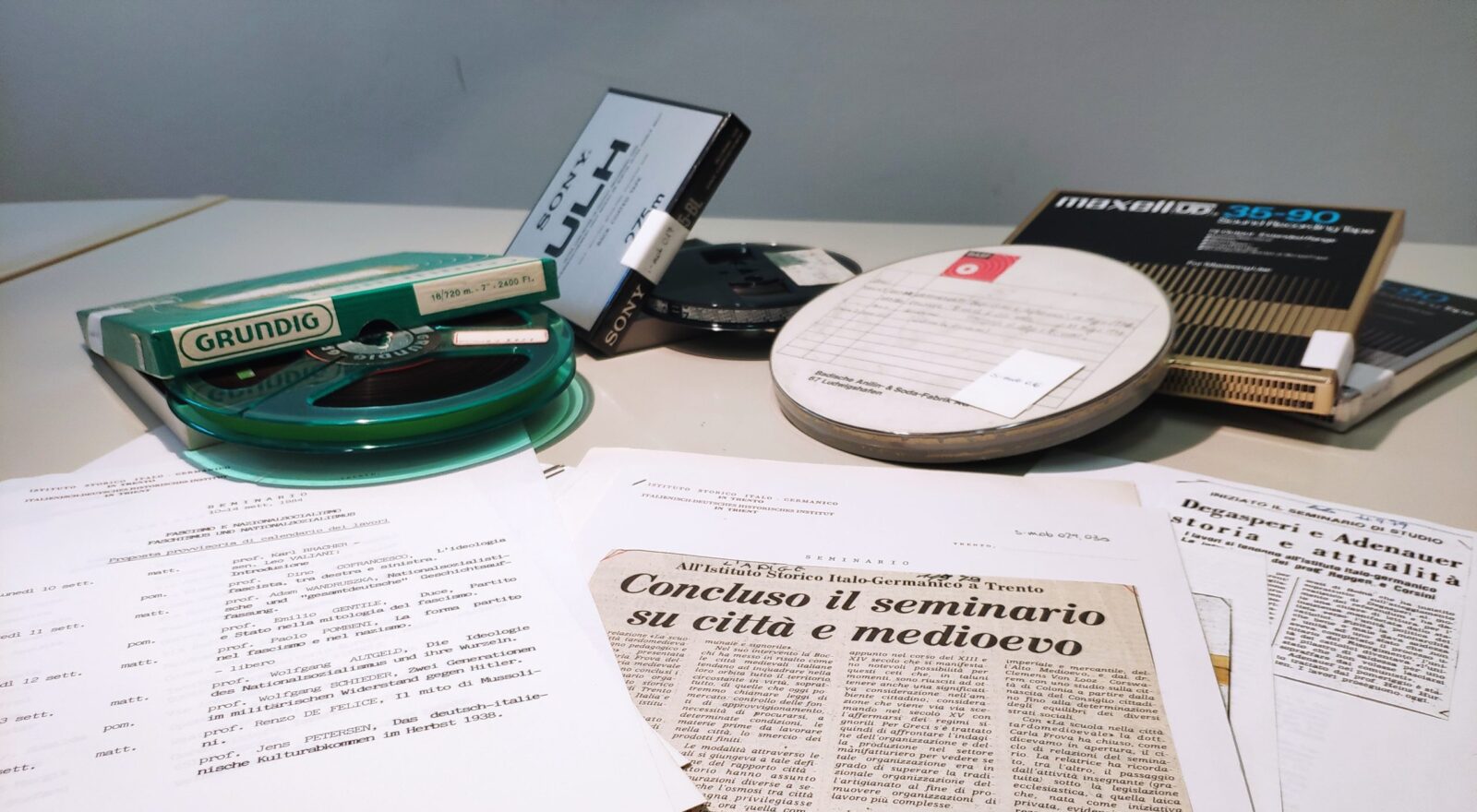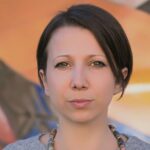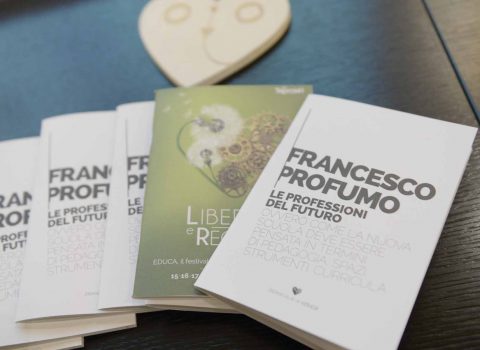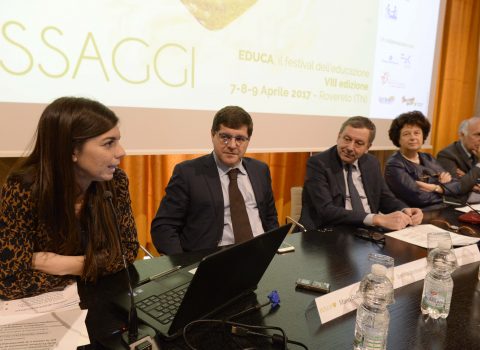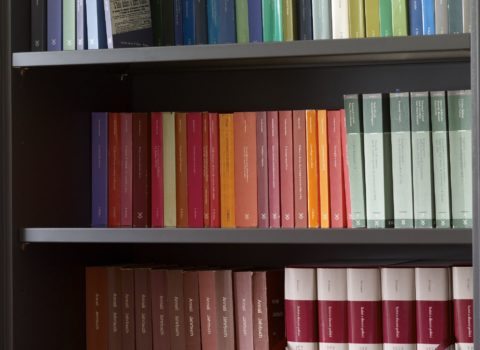
The Fondazione Bruno Kessler library audio heritage digitization project
An innovative and inclusive project to preserve FBK's audio heritage
The project titled “Dare nuova voce alle fonti 2.0. Comunicare la ricerca umanistica per tuttə” (Giving new voice to sources 2.0. Communicating humanities research for all” stems from the desire to preserve and make freely available to the scientific community and citizens the audio heritage of the Foundation’s humanities research hubs.
Since the beginning of their intense conference activity, in fact, the initiatives open to the public organized by the Italian-German Historical Institute (ISIG) and the Institute for Religious Studies (ISR) have been recorded, giving rise to an almost unique archive consisting of 111 magnetic reels, 228 audiocassettes and a marginal number of DVDs.
This fund, currently housed in the Foundation’s Library, represents an important starting point for disseminating, in an accessible and free manner, considerations on the humanities that help understand the world of yesterday and today. The obsolescence of the reproduction media and the predisposition of the reels to the risk of deterioration and damage pose a threat to preserving the materials and using the resources. The goal of the project is to offer a solution to these problems by transferring the entire holdings from analog to digital technology and uploading the audio tracks online to the dedicated portal on the Library’s website. In this database, designed specifically to ensure free enjoyment of the digitized material, there are already 308 audio tracks related to 48 initiatives, totaling about 500 hours of recorded materials.
In addition to being essential for preserving and handing down historical and historiographical memory, the work takes on added significance as it ensures equal opportunities in terms of access to culture and education for all people with disabilities. Providing the audio archive, in fact, allows free consultation of the contents of the fund even for a user with sight-related disabilities (blind/visually impaired individuals), or with other disabilities that may make access to traditional library documents difficult. For this reason, the objectives of the project are part of the “Strategy on the Rights of Persons with Disabilities 2021-2030,” promoted by the European Union in order to facilitate access to cultural resources by people with disabilities.
The project, which was also made possible thanks to funding from the Autonomous Province of Trento (Provincial Universal Civil Service) and the Ministry of Culture (Directorate General for Education, Research and Cultural Institutes), started in September 2021 with Chiara Marcon, a historian of medieval philosophy, and Emanuela Palermo, who moved from Calabria to Trentino precisely to carry out this project, which is very close to her previous digitization experiences.
“For me it has been a very intense year full of positive impressions, the thing that I will take with me outside the walls of FBK will definitely be the spirit of collaboration and discussion that I have experienced on a daily basis throughout the project. I hope that the vocation of us workers and managers will succeed in the intent to encourage cultural participation from the local area and beyond.”
Emanuela Palermo
“The experimental project “Giving New Voice to Sources” was created thanks to FBK Library staff’s sensitivities and commitment to digital humanities. Its success was possible thanks to the constant exchange of views within the Library’s team, which combines different skills and knowledge: philology, book history, contemporary history, without excluding philosophy and the practices of digitization of archival collection digitization practices. The project makes it clear that the dialogue between these disciplines is fruitful and reserves relevant developments for humanities research.”
Chiara Marcon
Currently, Miriam Carpentari and Linda Gremes are dedicated to the project, who took over the continuation of the activity in September 2022 and will run it until August 2023.
“I am pleased to share with you my civil service experience. As a result of this activity, I have certainly gained a lot of practical knowledge about the operational methods of digital transfer, metadatation, post-production, and enjoyment of audio material via the Web. My expectations were well repaid, I found a method that is personally congenial to me thanks to the discussion, advice and trust placed in it to seal a good dose of autonomy. It turned out to be a great opportunity for growth and allowed me to develop more critical awareness and organization, as well as a real sense of what it really means to deal with cultural heritage for all. I graduated in 2022 with a degree in Cultural Heritage from the University of Trento and am continuing my studies in Art History. The Protection, conservation, enhancement and promotion of cultural heritage are and will be pivotal guiding principles for my professional ethics.
The project titled “Dare nuova voce alle fonti 2.0. Communicating humanistic research for all ” of the FBK Library is totally in line with these objectives. Therefore, I hope that these audios will reach a diverse audience that I hope will be able to return feedback on the agility of the final product and its operational usefulness in scholarly inquiry in the humanities.”
Miriam Carpentari
“I welcomed the opportunity to be involved in such an exciting, innovative and inclusive project. During these first six months of activity, I was able to acquire valuable professional skills in the area of digitization and post-production techniques of audio materials. The experience also offered me the opportunity to combine the university curricula I had pursued, the three-year degree in Modern Languages and the master’s degree in Publishing and Journalism, allowing me to work on multilingual resources and to apply the knowledge I had gained in relation to the production of bibliographic material to audio material.
Initial difficulties were gradually overcome through the acquisition, little by little, of familiarity with and mastery of working tools and techniques, and soon repaid by the satisfaction of having contributed personally to the preservation and enhancement of historical-scientific heritage of collective interest.”
Linda Gremes
This is a new experience in the Italian landscape since, to date, we are not aware of any research institutions that have taken it upon themselves to record their scientific activities since the 1970s and then digitize them, both for editorial purposes and to ensure their protection and transmission. For this reason, the production of a video-tutorial, designed by Chiara and Emanuela and produced by Andrea Franceschini of the Foundation’s Communication and External Relations Service, was crucial to the success of the project. The tutorial covers the various steps to be taken during the audio digitization process. Divided into sections, it provides guidance on drafting an executional practice and is a useful support to all activities. Its creation was not easy and was developed through relentless investigation, experiences and discussion, and faced unforeseen events resolved thanks also to the help of staff’s very different intelligence and sensitivity. Chiara and Emanuela have also written an article entitled “Giving new voice to sources. Communicating humanitics research for all.” A project to digitize the audio collection of Fondazione Bruno Kessler Library, which will soon be published in the peer-reviewed and open access four-monthly journal “AIB studi,” published by the Italian Library Association.
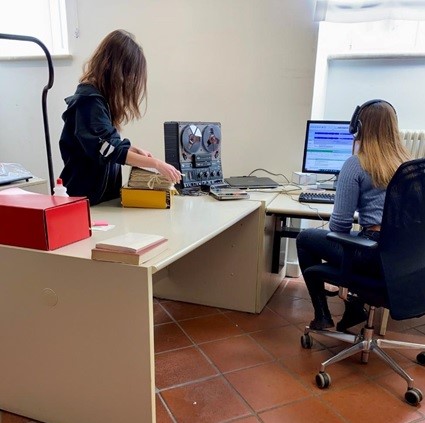
Linda and Miriam during their activities in the FBK Library
Please find below the links to the video pills of the tutorial
- Le fasi della digitalizzazione audio | The stages of audio digitization
- Il riversamento dall’analogico al digitale degli audio |The transfer from analog to digital audio
- La postproduzione degli audio digitalizzati | The postproduction of digitized audio
- Guida all’ascolto | How to listen Part 1
- Guida all’ascolto | How to listen Part 2
- Metadati: accessibilità e ricercabilità | Metadata: accessibility and searchability
